How Chatbots Are Revolutionizing Customer Support in 2025
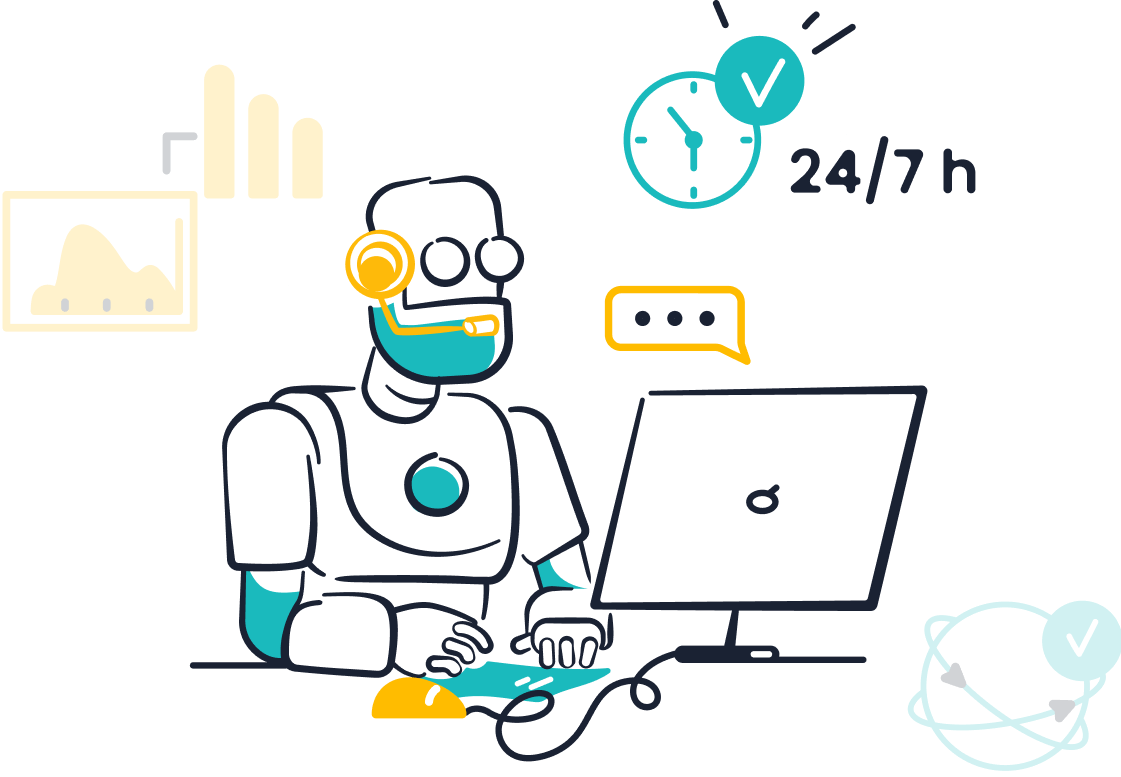

AI-powered chatbots are revolutionizing the way you experience customer service in 2025. These smart virtual assistants use advanced technologies to deliver faster, more personalized support. Businesses like Sobot have embraced this transformation, offering tools that improve efficiency and customer satisfaction scores, serving as a prime chatbot customer service example.
Recent data shows that 72% of business leaders prioritize AI for enhancing customer experience, while 60% expect to cut support costs significantly. With solutions like Sobot’s chatbot, you can witness seamless interactions that reduce wait times and boost customer trust. This shift aligns with emerging customer service trends, setting new benchmarks for excellence.
Advancements in AI and Automation in Customer Support
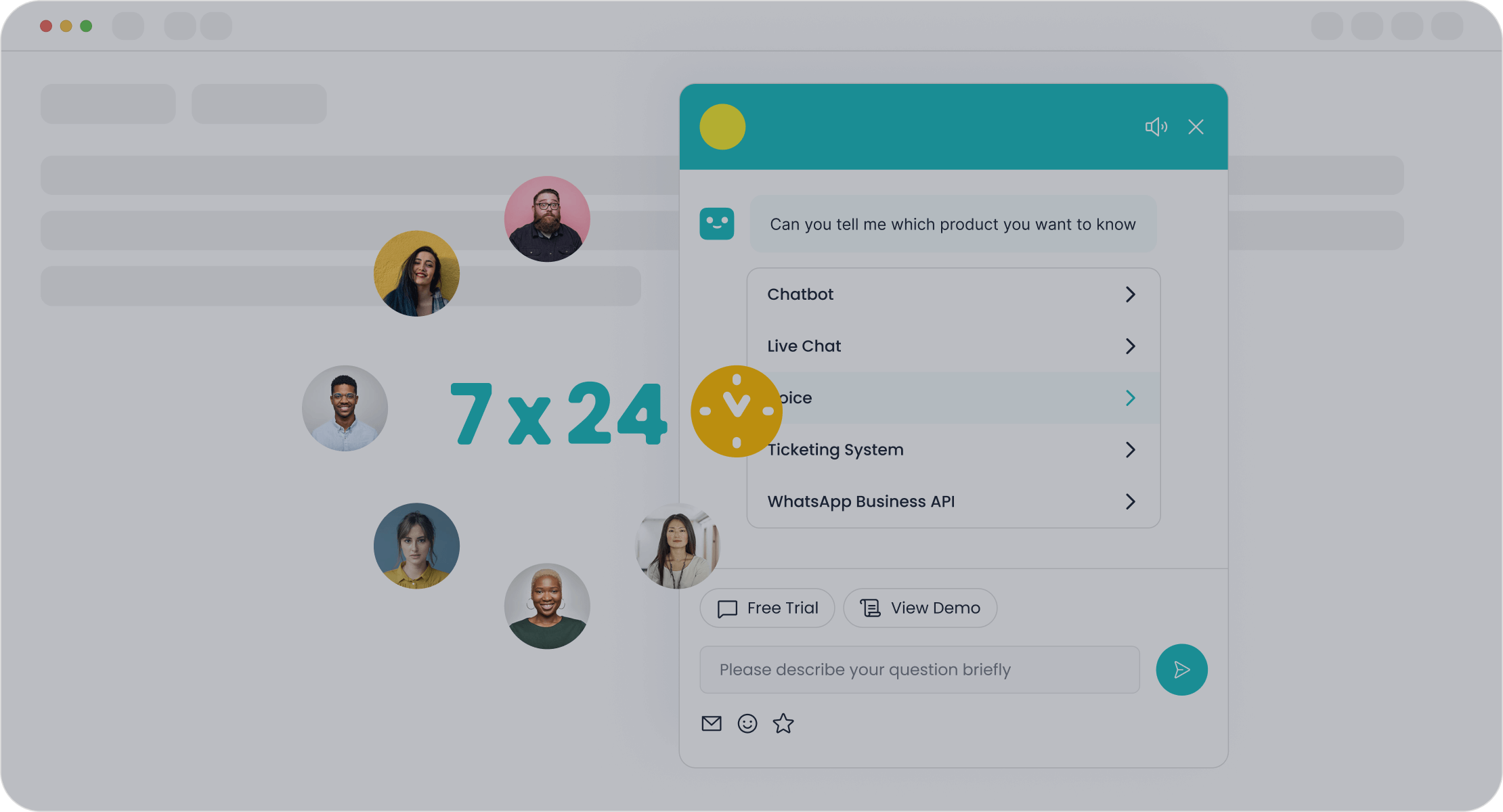
Generative AI: The Future of Chatbot Capabilities
Generative AI is transforming how chatbots interact with customers. These advanced systems create responses that feel natural and human-like, making conversations more engaging. For example, generative AI chatbots can understand the context of a question and provide accurate, relevant answers. This capability ensures smoother interactions, especially when handling complex queries.
You may have noticed how tools like ChatGPT and Bard produce text that mimics human writing. These systems showcase the potential of generative AI in service. They not only enhance creativity but also improve the flow of conversations. Businesses are now using these AI tools to deliver personalized support, which boosts customer satisfaction and loyalty.
Generative AI in service is also paving the way for innovation. Companies are focusing on improving workflows and user experiences with these tools. This trend highlights the growing importance of AI-enabled customer care in shaping the future of customer support.
Real-Time Problem Solving with Advanced NLP
Natural Language Processing (NLP) has become a game-changer in customer service. It allows chatbots to understand and respond to customer queries in real time. With advanced NLP, chatbots can analyze the tone and intent behind a message, ensuring accurate and empathetic replies.
For instance, 38% of companies now use NLP to enhance customer care. This technology enables chatbots to handle complex issues without human intervention. Imagine asking a chatbot about a product return policy and receiving a detailed response instantly. That’s the power of NLP in action.
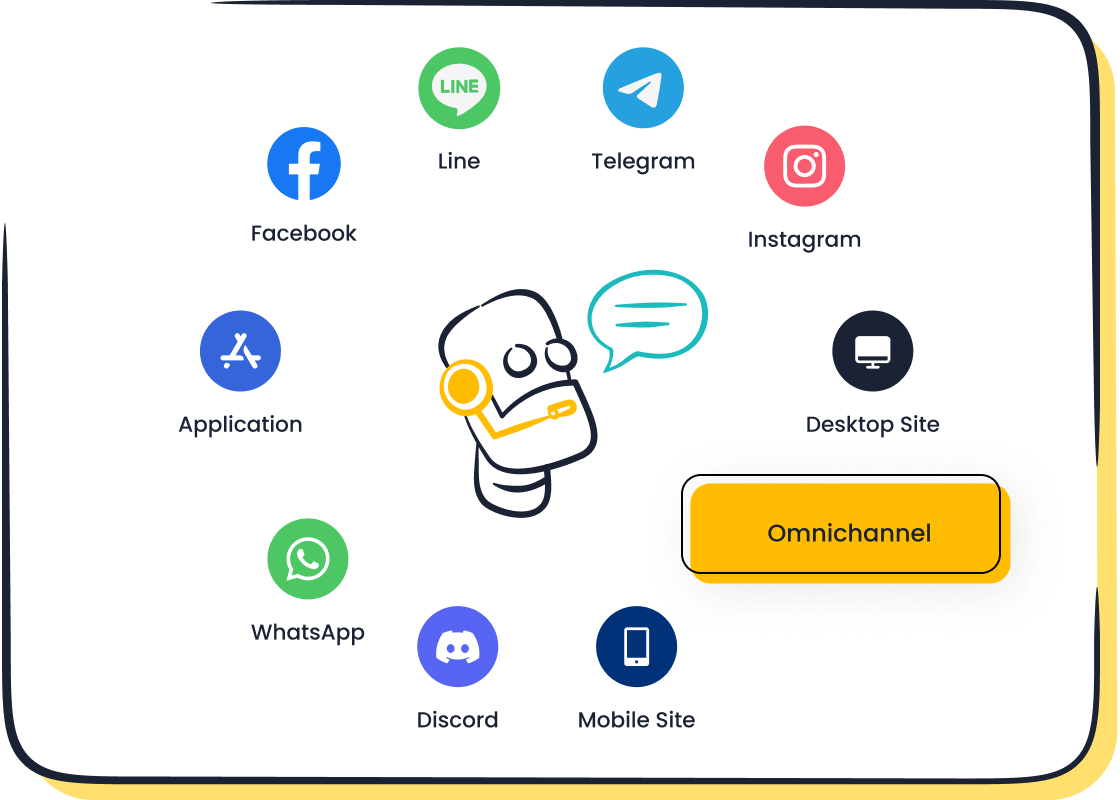
Sobot’s AI tools leverage NLP to provide seamless support across multiple channels. Whether it’s a live chat or an email, these tools ensure consistent and efficient communication. By adopting such customer experience tools, businesses can meet rising expectations and improve overall satisfaction.
Automation of Repetitive Tasks to Improve Efficiency
Automating repetitive tasks is one of the most significant benefits of AI in customer service. Chatbots can handle routine queries, such as order tracking or account updates, freeing up human agents for more complex tasks. This automation not only saves time but also reduces operational costs.
For example, MSU Federal Credit Union’s chatbot automates 2,000 interactions monthly, improving service delivery. Similarly, Sobot’s chatbot operates 24/7, triaging queries and cutting expenses by up to 50%. These automated conversations enhance efficiency while maintaining high-quality support.
Unilever has also embraced chatbots to streamline HR processes. By automating tasks like answering employee queries, they’ve reduced administrative burdens and improved communication. This approach demonstrates how automation can drive productivity and accuracy in various industries.
Tip: Automating tasks with AI tools allows your team to focus on strategic activities, boosting both employee engagement and customer satisfaction.
Personalization and Proactive Support with Chatbots

Tailoring Interactions to Individual Customer Needs
Personalized service has become a cornerstone of modern customer support. Customers now expect businesses to understand their preferences and provide tailored solutions. Chatbots equipped with AI-driven customer experience tools excel in this area by analyzing customer data to deliver personalized experiences. For instance, they can remember past interactions, recommend products based on browsing history, or even adjust their tone to match your communication style.
Research shows that 88% of online shoppers are more likely to continue shopping on websites offering personalized experiences. Additionally, 96% of Gen Zers and 97% of Millennials prefer brands that provide tailored interactions. These statistics highlight the growing importance of personalization in meeting customer expectations.

Sobot’s AI chatbot takes this a step further by offering multilingual support and omnichannel integration. Whether you’re interacting via WhatsApp, SMS, or live chat, the chatbot ensures consistent and personalized service. This approach not only reduces wait times but also enhances engagement, making customers feel valued.
| Statistic | Description |
|---|---|
| 84% | Consumers willing to spend more with brands offering preferred communication channels. |
| 74% | Increase in spending with companies providing self-service options. |
By leveraging AI, businesses can create a seamless customer service experience that fosters loyalty and satisfaction.
Predictive Analytics for Anticipating Customer Issues
Predictive analytics is revolutionizing proactive customer service by enabling businesses to foresee potential issues before they arise. This technology analyzes patterns in customer behavior, such as declining purchase frequency or repeated complaints, to identify early warning signs of dissatisfaction. With this insight, you can address problems proactively, offering solutions before they escalate.
For example, predictive analytics can detect when a customer is likely to abandon their cart and trigger a chatbot to offer a discount or assistance. This timely intervention not only resolves the issue but also boosts conversion rates. Studies reveal that 67% of customer churn could be avoided if issues were resolved during the first engagement.
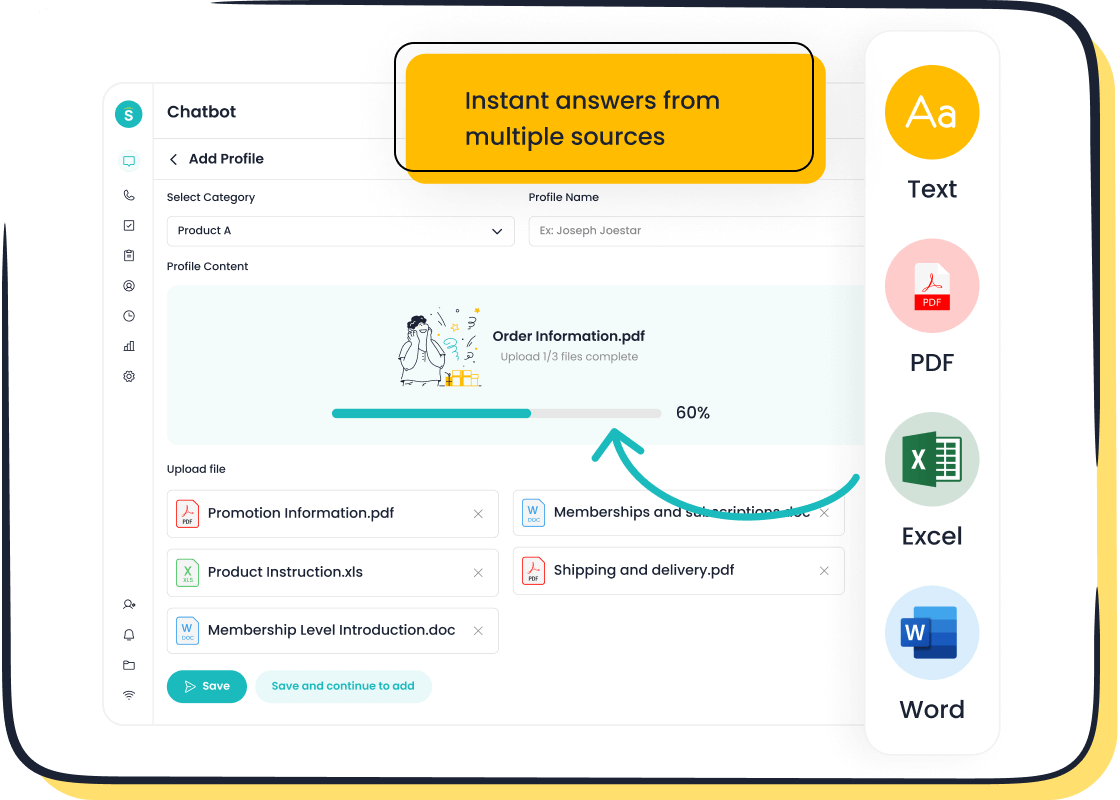
Sobot’s AI chatbot integrates predictive analytics to enhance customer interactions. It identifies trends in real time, allowing businesses to allocate resources effectively and provide personalized service. This proactive approach ensures that your customers feel heard and valued, strengthening their trust in your brand.
Proactive Engagement Through Data-Driven Insights
Proactive engagement is no longer a luxury—it’s a necessity in today’s competitive landscape. Data-driven insights empower chatbots to anticipate customer needs and initiate meaningful interactions. For instance, a chatbot can notify you about a delayed shipment or recommend complementary products based on your purchase history.
More than 85% of customers now expect businesses to communicate proactively. This shift in customer expectations underscores the importance of using AI-powered tools to stay ahead. By automating responses and leveraging predictive analytics, chatbots can shorten support processes and resolve issues efficiently.
Sobot’s chatbot exemplifies this approach by combining real-time data analysis with proactive outreach. It uses insights to send personalized messages, such as reminders for upcoming renewals or exclusive offers. This not only enhances the customer experience but also fosters loyalty, as customers appreciate the effort to address their needs without being prompted.
Note: A Gartner survey found that 98% of businesses are either using or planning to use AI in their customer engagement strategies. This trend highlights the critical role of AI in shaping the future of customer service.
Building Trust Through Privacy and Security
How Chatbots Handle Sensitive Customer Data
Chatbots play a vital role in managing sensitive customer data securely. They use advanced measures to protect information, ensuring your trust in their capabilities. For example, encryption safeguards data during transmission and storage, preventing unauthorized access. Companies also prioritize data privacy by adhering to strict protocols, especially in industries like banking and insurance, where sensitive information is exchanged frequently.
Sobot’s AI chatbot exemplifies these practices. It integrates robust security features, including encrypted backups and GDPR compliance, to protect your data. This focus on trust and privacy ensures that your interactions remain confidential and secure. Businesses using Sobot’s chatbot benefit from reduced risks of identity theft and data breaches, enhancing the overall customer service experience.
| Security Measure | Description |
|---|---|
| Data Privacy | Protects sensitive information and builds user trust. |
| Encryption | Prevents unauthorized access to data during transit and storage. |
| Compliance | Ensures adherence to regulations like GDPR and HIPAA. |
These measures highlight how chatbots prioritize your security while delivering efficient service.
Compliance with Data Protection Regulations
Compliance with data protection regulations is essential for building trust. Chatbots must follow strict guidelines to ensure your data is handled responsibly. For instance, they inform you about the types of data collected and how it will be used. Explicit consent mechanisms, such as opt-in checkboxes, allow you to control your personal information. Data minimization practices ensure only necessary information is collected, reducing risks.
Sobot’s chatbot aligns with these regulations, offering features like GDPR compliance and encrypted data storage. These practices inspire confidence in users, leading to increased engagement and loyalty. Moreover, regulatory compliance helps businesses avoid penalties and reputational damage, making it a win-win for both parties.
Tip: Always check if a chatbot complies with major regulations like GDPR or HIPAA. This ensures your data remains secure and your privacy is respected.
Transparent Communication to Build Customer Confidence
Transparent communication is key to earning your trust. Chatbots achieve this by mirroring human-like conversation styles, ensuring accuracy and empathy in their responses. For example, they notify you about data usage and provide clear options for modifying or deleting personal information. This transparency fosters confidence in their reliability.
Sobot’s chatbot excels in this area by combining privacy-focused features with proactive engagement. It uses real-time insights to deliver accurate responses while maintaining security. Whether handling sensitive queries or escalating issues to human agents, the chatbot ensures your concerns are addressed effectively. This focus on trust and privacy strengthens customer relationships and enhances the overall customer service experience.
Note: Research shows that maintaining privacy and security while communicating empathetically boosts customer trust significantly.
Balancing Automation with Human Interaction
When to Escalate to Human Agents
Automation excels at handling repetitive tasks, but it cannot replace human creativity and empathy. Knowing when to escalate a chatbot conversation to a human agent is critical for maintaining a positive customer experience. For example, chatbots should transfer inquiries to live agents when they encounter complex issues or emotional customer concerns. Properly designed systems ensure a seamless transition, minimizing frustration.
| Key Point | Description |
|---|---|
| Escalation Importance | Live agents should step in when chatbots cannot meet customer needs effectively. |
| Seamless Transition | Chatbots should transfer inquiries smoothly, preserving chat history and saving time. |
Sobot’s chatbot ensures smooth handoffs by notifying customers when a human agent joins the conversation. It also transfers chat histories, so customers don’t need to repeat themselves. This approach respects your time and enhances satisfaction.
Enhancing Human-Agent Efficiency with AI Support
AI doesn’t just automate tasks; it empowers human agents to perform better. By handling routine queries, AI allows agents to focus on complex interactions. Studies show that AI-assisted agents resolve 13.8% more inquiries per hour. This efficiency leads to faster resolutions and happier customers.
| Study | Task Description | Improvement in Efficiency |
|---|---|---|
| Study 1 | Customer service agents resolving inquiries | 13.8% more inquiries per hour |
| Study 2 | Business professionals writing documents | 59% more documents per hour |
| Study 3 | Programmers coding projects | 126% more projects per week |
Sobot’s chatbot enhances agent productivity by providing multilingual support and real-time insights. This integration ensures agents can deliver personalized and efficient service across channels like WhatsApp and SMS.
Maintaining Empathy in Customer Interactions
Empathy remains a cornerstone of excellent customer service. While chatbots handle routine tasks, human agents bring emotional intelligence to the table. Companies like Bed Bath & Beyond have shown how empathy improves customer satisfaction. By addressing frustrations directly, they reduced their checkout process from seven steps to three.
Sobot’s chatbot complements this by managing routine tasks, allowing agents to focus on empathetic interactions. Its multilingual support ensures that customers feel understood, regardless of their language. This balance between automation and human touch creates a superior customer experience.
Tip: Use AI to handle repetitive tasks, but always keep human agents central to meaningful interactions.
Emerging Customer Service Trends and Actionable Insights
Integrating Chatbots into Omnichannel Strategies
Chatbots are transforming the way businesses deliver an omnichannel customer experience. By integrating chatbots into multiple communication channels like WhatsApp, SMS, and live chat, you can provide seamless and consistent support. This approach ensures customers receive the same level of service, whether they interact via social media or email. It also improves customer satisfaction by creating a cohesive experience across platforms.
An omnichannel strategy drives better customer retention and lifetime value. For example, 87% of shoppers who have tried generative AI tools report positive impacts on their shopping experiences. Additionally, 73% of consumers are open to using AI-powered chatbots for customer service. Chatbots enhance personalization by accessing individual profiles, purchase histories, and browsing behaviors. They also operate 24/7, answering frequently asked questions and assisting in product selection.
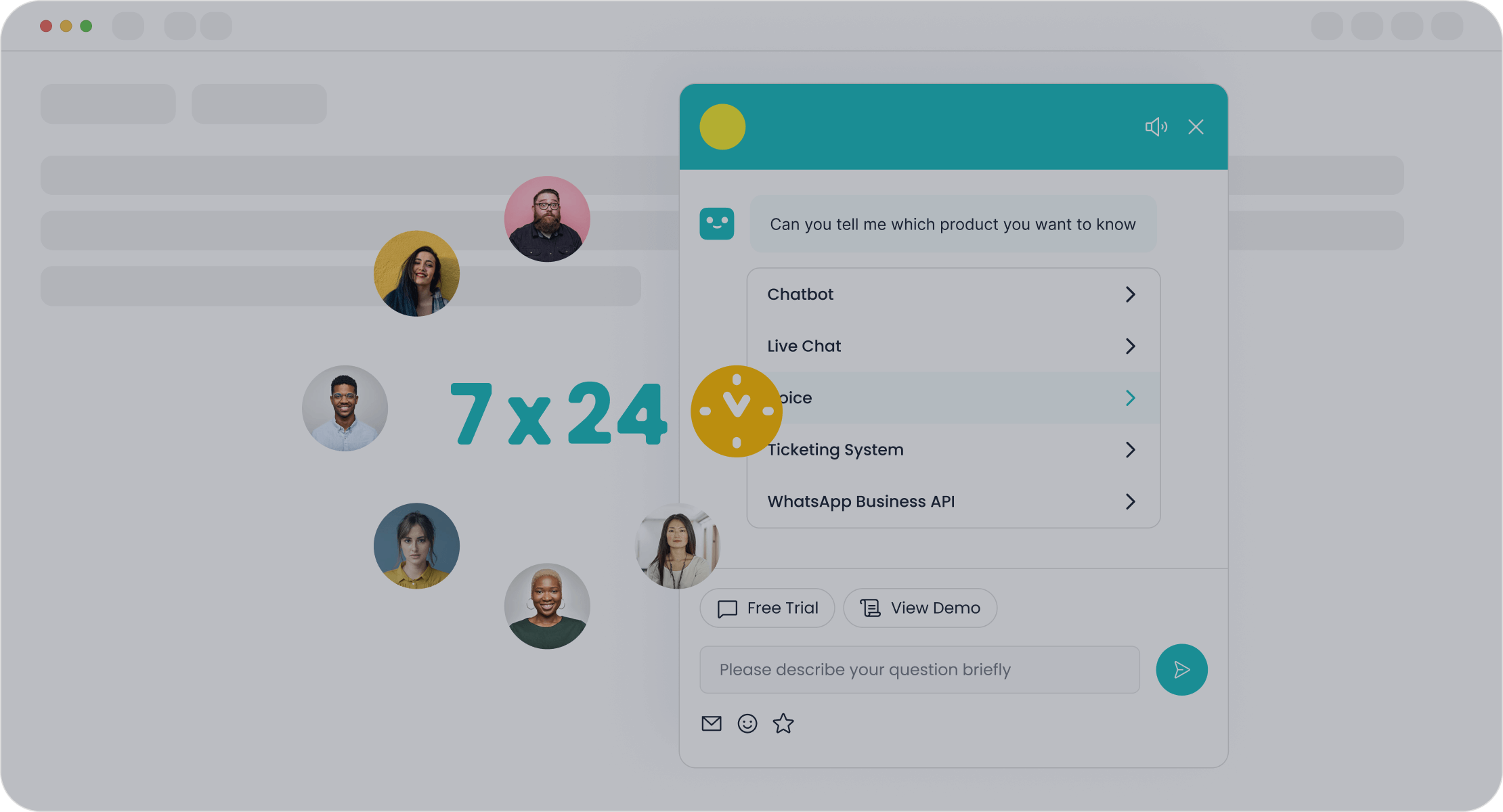
Sobot’s chatbot excels in omnichannel integration. It supports multiple platforms, ensuring you can meet customer expectations wherever they prefer to engage. This capability not only boosts satisfaction but also increases revenue by fostering loyalty.
Leveraging AI to Improve Customer Retention
AI plays a critical role in improving customer retention by delivering personalized and proactive support. Predictive analytics, powered by AI, helps you anticipate customer needs and address issues before they escalate. For instance, AI can detect when a customer is likely to abandon their cart and trigger a chatbot to offer assistance or discounts. This timely intervention reduces churn and increases repeat purchases.
Key metrics like Customer Retention Rate (CRR) and Net Promoter Score (NPS) highlight the effectiveness of AI in retaining customers. Companies investing in proactive customer service report a 95% improvement in retention rates. Sobot’s AI chatbot leverages these insights to optimize customer interactions. It uses real-time data to deliver tailored solutions, ensuring customers feel valued and understood.
| Metric | Description |
|---|---|
| Customer Retention Rate (CRR) | Measures the percentage of customers who remain with your business over a specified period. |
| Repeat Purchase Rate | Reflects the number of customers who return for additional purchases, indicating satisfaction. |
| Net Promoter Score (NPS) | Measures likelihood of customers recommending your business, indicating satisfaction and growth potential. |
By adopting AI-driven tools like Sobot’s chatbot, you can strengthen customer relationships and drive long-term loyalty.
Preparing Teams for a Hybrid Support Model
Hybrid support models combine the efficiency of AI with the empathy of human agents. Preparing your team for this approach requires strategic planning and training. Start by identifying key areas where AI can enhance your customer service. Choose tools that align with your objectives, and ensure your data is clean and organized for effective AI training.
Training your team is essential for success. Upskilling programs should focus on technical training, adaptive skills development, and psychological preparation. For example, employees should learn how to collaborate with AI copilots to generate responses and summaries. Pilot testing helps evaluate AI performance in real-world scenarios, ensuring smooth implementation.
Successful implementation requires continuous monitoring and improvement. Track AI performance metrics and customer feedback to refine your hybrid model.
Sobot’s solutions empower teams to work alongside AI effectively. Its chatbot assists agents by handling routine queries, freeing them to focus on complex issues. This collaboration enhances productivity and ensures a superior customer experience.
AI-driven chatbots are transforming customer support by blending efficiency, personalization, and security. Businesses adopting tools like Sobot’s Chatbot achieve remarkable results:
- Telstra reduced follow-up calls by 20%, boosting agent productivity.
- Motel Rocks cut ticket volume by 43%, raising customer satisfaction by 9.44%.
- The Swiss Red Cross onboarded 500 volunteers in a week, showcasing scalability.
These examples highlight the power of automation in streamlining operations. By embracing these technologies, you can meet rising customer expectations and create seamless, impactful service experiences. Sobot’s solutions empower businesses to stay competitive in this evolving landscape.
FAQ
What are the main benefits of using chatbots for customer support?
Chatbots improve efficiency by automating repetitive tasks and providing 24/7 support. They reduce costs by handling queries without human agents. Sobot’s chatbot boosts productivity by 70% and cuts expenses by up to 50%, making it a valuable tool for modern businesses. Learn more.
Can chatbots handle complex customer queries?
Yes, advanced chatbots use AI tools like Natural Language Processing (NLP) to understand tone and intent. Sobot’s chatbot excels at resolving complex issues with real-time insights. When needed, it seamlessly escalates conversations to human agents, ensuring customer satisfaction.
How do chatbots ensure data privacy and security?
Chatbots protect sensitive information through encryption and compliance with regulations like GDPR. Sobot’s chatbot uses encrypted backups and secure data storage to safeguard your privacy. These measures build trust and confidence in AI-powered customer support.
Are chatbots suitable for all industries?
Chatbots work across industries like retail, finance, and gaming. Sobot’s chatbot supports omnichannel communication, making it adaptable to diverse needs. For example, OPPO achieved an 83% resolution rate using Sobot’s chatbot during peak shopping periods. Read OPPO’s story.
Do chatbots require coding knowledge for setup?
No, most modern chatbots, including Sobot’s, feature user-friendly interfaces. You can design workflows with point-and-click tools, eliminating the need for coding. This simplicity allows businesses to deploy chatbots quickly and efficiently.
See Also
Enhancing Customer Satisfaction Through Chatbots In E-commerce
Best 10 Websites Utilizing Chatbots This Year
Leading 10 Chatbots For Websites In The Year 2024
Key Advantages Of Implementing Chatbots On Websites
AI-Powered Customer Service Agents Transform Support Experience